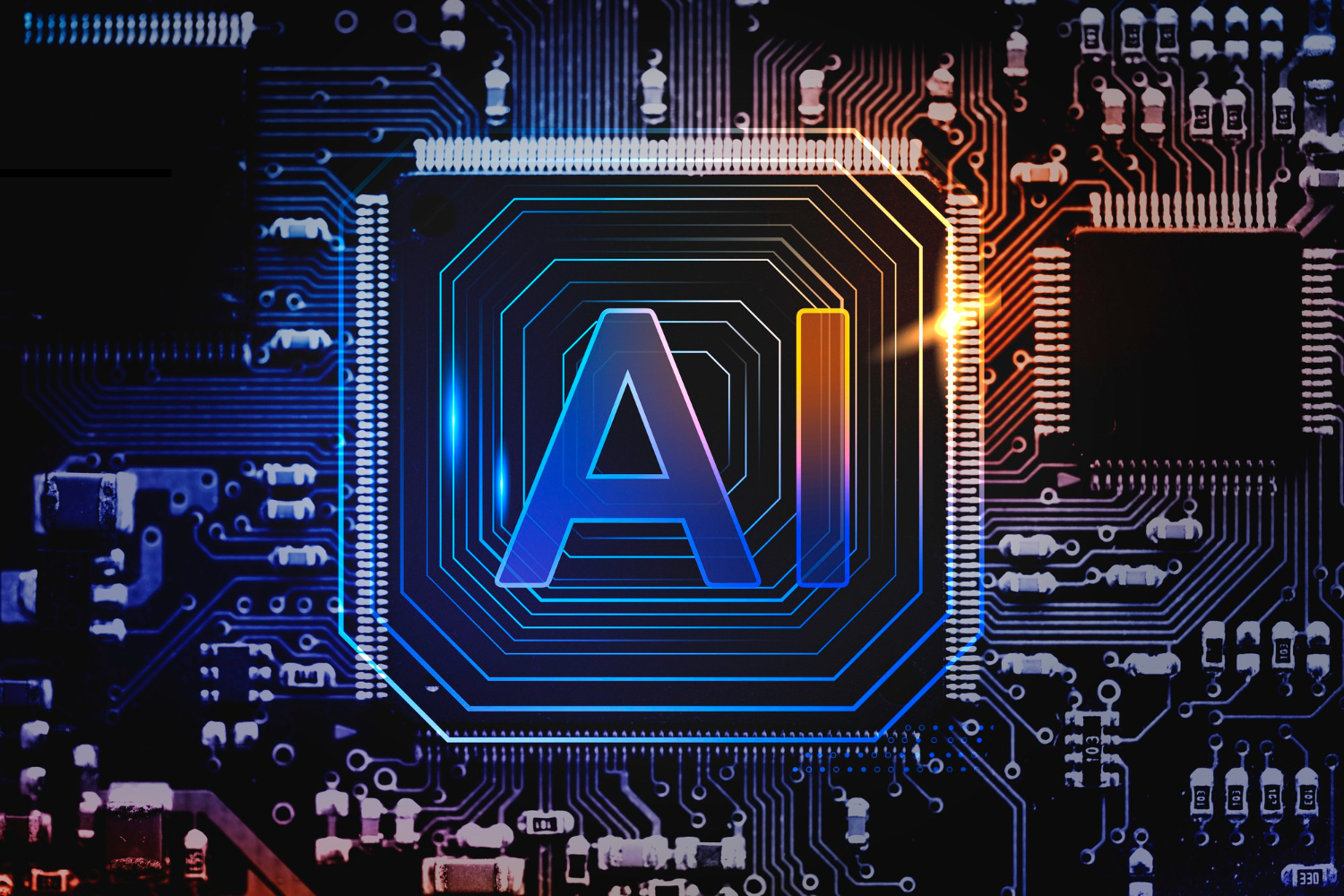It has been thought that there is nothing we can do with Artificial Intelligence (AI). Artificial Intelligence (AI) is rapidly evolving and has already begun to significantly impact various industries. As we look to the future of AI, the potential of revolutionize our world is massive. From transforming healthcare and education to addressing climate change and reshaping the workforce, AI will change the planet in profound ways. This article explores the future of AI and its potential to bring about transformative changes.
AI in Healthcare: Revolutionizing Medical Treatment
Healthcare would be one of the sectors where AI can play an important role. AI has the potential to change medical treatment, making it more personalized, efficient, and effective. Here are a few ways AI is expected to impact healthcare:
- Personalized Medicine, Diagnosis and Analytics:
- AI Algorithm capable of creating personalized treatment plans by analyzing data ranging from genetic information, medical records, lifestyle choices, and other important criteria. With AI, it will lead more effective treatments while keeping the side effects minimal.AI can help in the early diagnosis of diseases by analyzing medical images and detecting patterns that might be missed by human doctors. Predictive analytics can also identify individuals at risk of developing certain conditions, allowing for preventative measures.
- Robotic Surgery and AI Health Assistants:
- AI-powered robots can assist in surgeries, providing greater precision and reducing the risk of complications. These robots can perform minimally invasive procedures, leading to faster recovery times. AI-driven virtual health assistants can provide patients with round-the-clock medical advice, schedule appointments, and remind them to take their medications. This can improve patient adherence to treatment plans and reduce the burden on healthcare providers.

AI in Education: Enhancing Learning Experiences
The future of education will be significantly influenced by AI, which can enhance learning experiences and make education more accessible and personalized.
- Personalized Learning and Tutoring Mechanism:
- AI can tailor educational content to the individual needs of students, providing customized learning experiences that can help each student learn at their own pace. This can lead to better understanding and retention of information. AI-powered tutoring systems can provide one-on-one support to students, helping them with subjects they find challenging. These systems can adapt to the student’s learning style and provide targeted feedback.
- Administrative Efficiency and Accessibility:
- AI can automate administrative tasks such as grading, scheduling, and student admissions, freeing up educators to focus more on teaching and student engagement. AI can help make education more accessible to students with disabilities by providing tools such as speech-to-text, text-to-speech, and real-time translation services.
AI, Renewable Energy and Climate Change: Securing the Planet
AI can play a crucial role in addressing one of the most pressing issues of our time: climate change. By leveraging AI technologies, we can develop innovative solutions to mitigate and adapt to the effects of climate change.
- Climate Modelling and Prediction:
- AI can enhance climate models by analyzing large datasets and improving the accuracy of climate predictions. Based on the data from AI, policymakers can make better decisions for climate action.
- Renewable Energy Optimization:
- AI can optimize the use of renewable energy sources such as solar and wind power by predicting energy production and managing energy storage systems. This can lead to more efficient and reliable renewable energy systems.
- Environmental Monitoring:
- AI can monitor environmental changes in real time using satellite imagery and sensor data. This can help detect deforestation, illegal fishing, and other activities that harm the environment.
- Sustainable Agriculture:
- AI can promote sustainable agriculture by optimizing irrigation systems, predicting crop yields, and detecting pests and diseases. This can lead to more efficient use of resources and higher crop productivity.
AI in Transportation: Transforming Mobility
The transportation sector is poised for a significant transformation with the integration of AI. AI-driven technologies will make transportation more efficient, safer, and environmentally friendly.
- Autonomous Vehicles and Traffic Management
- Self-driving cars, trucks, and buses powered by AI will reduce the need for human drivers, leading to fewer accidents and lower transportation costs. Autonomous vehicles can also optimize routes and reduce traffic congestion. AI can analyze traffic patterns in real time and manage traffic flow to reduce congestion and emissions. Intelligent traffic signals and smart infrastructure can improve urban mobility.
- Public Transportation:
- AI can enhance public transportation systems by predicting demand and optimizing routes and schedules. This can lead to more efficient and reliable public transit services.
- Logistics and Supply Chain Management:
- AI can streamline logistics and supply chain operations by predicting demand, optimizing inventory, and managing delivery routes. Reducing the delivery routes mostly reduces the environmental effects and saves costs.
AI for Automation and Collaboration: Shaping the Future
AI will have a profound impact on the workforce, transforming the nature of work and the skills required for future jobs.
- Automation of Repetitive Tasks:
- AI can help workers focus better on complex and creative activities while taking over the tiring and repetitive work away from them. This can lead to increased productivity and job satisfaction. While AI may displace certain jobs, it will create new job opportunities in fields such as AI development, data analysis, and cybersecurity. To prepare the workforce for these roles, upskilling will be essential.
- Human-AI Collaboration:
- It is impossible to reduce human involvement to zero in the production line. There will be a greater collaboration between humans and AI systems to use the human workforce wisely and efficiently. AI can augment human capabilities by providing insights and recommendations, leading to better decision-making and problem-solving.
- Remote Work and Flexibility:
- AI can support remote work by enabling virtual collaboration and communication tools. This can provide greater flexibility for workers and reduce the need for physical office spaces.
AI in Customer Service
Vast part of the customer service role still depends on the human. AI can provide the round-the-clock customized service to the client with better experiences. Compared to humans, AI can make fewer errors to reduce complications. As we already have noticed the chatbots and Virtual Assistants are in place, and shortly, human customer service will be replaced with AI.

AI and its Ethical Concerns
As AI continues to advance, it is crucial to address the ethical and societal implications of AI technologies. Though AI brings huge positive effects to the different sectors, there are concerns about privacy and data security. Robust measures must be implemented to protect personal data and prevent unauthorized access. AI can lead to unfair and discriminatory outcomes because of the processing of biased data. Engineers and Scientists are required to develop AI to ensure fairness and reduce bias.
Instead of making the whole AI process a puzzle, AI systems should be transparent and explainable, allowing users to understand how decisions are made. Accountability mechanisms should be in place to address any harm caused by AI systems. The deployment of AI technologies should consider their impact on society, including potential job displacement and the digital divide. Policies and regulations should be developed to ensure the responsible and equitable use of AI.
The future of AI holds immense potential to change the planet in numerous ways. From revolutionizing healthcare and education to addressing climate change and transforming transportation, AI will bring about significant advancements that can improve our quality of life. However, it is crucial to address the ethical and societal challenges associated with AI to ensure its responsible and equitable use. By harnessing the power of AI and addressing these challenges, we can create a better and more sustainable future for all. By defining the policy, AI will be a tool for the future to shape the world.




